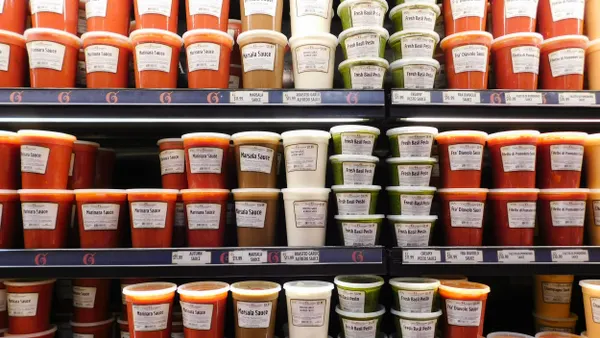Dive Brief:
-
Small Business Saturday celebrated its eighth year, and an estimated 108 million consumers reported shopping or dining at local independently-owned businesses, according to the 2017 Small Business Saturday Consumer Insights Survey, released Monday by the National Federation of Independent Business and American Express. That’s down from last year’s 112 million shoppers, which was a 13% increase from 2015.
-
According to the survey, among U.S. consumers who went out and shopped in-store, total spending was an estimated $12.9 billion at independent retailers and restaurants on the day, according to an email to Retail Dive from Small Business Saturday spokesperson Nicole Leinbach-Reyhle. That number is self-reported and not based on actual sales or receipts, and doesn't include online spending on the day, according to the email.
-
That’s less than the estimated $15.4 billion reported by American Express last year, which was another decrease from its estimated $16.2 billion spent in 2015. "We’re encouraged to see that while the number dipped, it was only slightly – showcasing that the day has become cemented in the majority of consumers holiday shopping traditions," Leinbach-Reyhle said in the email.
Dive Insight:
Most U.S. consumers (70%) are aware of Small Business Saturday, the survey also found, but that doesn’t seem to be translating into sales. E-commerce was the name of the game during the Black Friday shopping weekend, and many smaller businesses offer scaled back e-commerce, if any at all, and few omnichannel services like in-store pickup or delivery of online orders.
All that could present a significant disadvantage. Still, more than a third (35%) of shoppers turned out for small businesses online on that day, too, according to the American Express press release.
It could be that chains’ increasing movement into urban centers, as Target and others have done, could be taking sales from downtown independents. But generally, larger retailers’ redoubled efforts to perform well in a highly competitive environment is destined to hurt smaller ones, Moody’s warned earlier this year.
"We believe that over the next two years, the bigger competitors will deepen their consolidated hold over the industry, leaving smaller retailers to fight it out for an increasingly smaller share of the market share pie," Moody’s analysts said in a July report emailed to Retail Dive.
The decrease in sales during the small business event isn’t a problem of effort — joining American Express, more than 575 organizations helped spread the word about it, an 18% increase over last year, according to American Express.
The coalition, led by the group Women Impacting Public Policy and including other national, state and local associations, was created in 2011 to amplify the event. This year, more than 7,200 "neighborhood champions" across all 50 states, Washington, D.C. and some U.S. territories (a 7% increase from last year) engaged an estimated 2.2 million small businesses and celebrated through activities like shopping passport programs, pop-up holiday markets, sleigh rides and artwork.
This story is part of our ongoing coverage of the 2017 holiday shopping season. You can browse our holiday page and sign up for our holiday newsletter for more stories.













